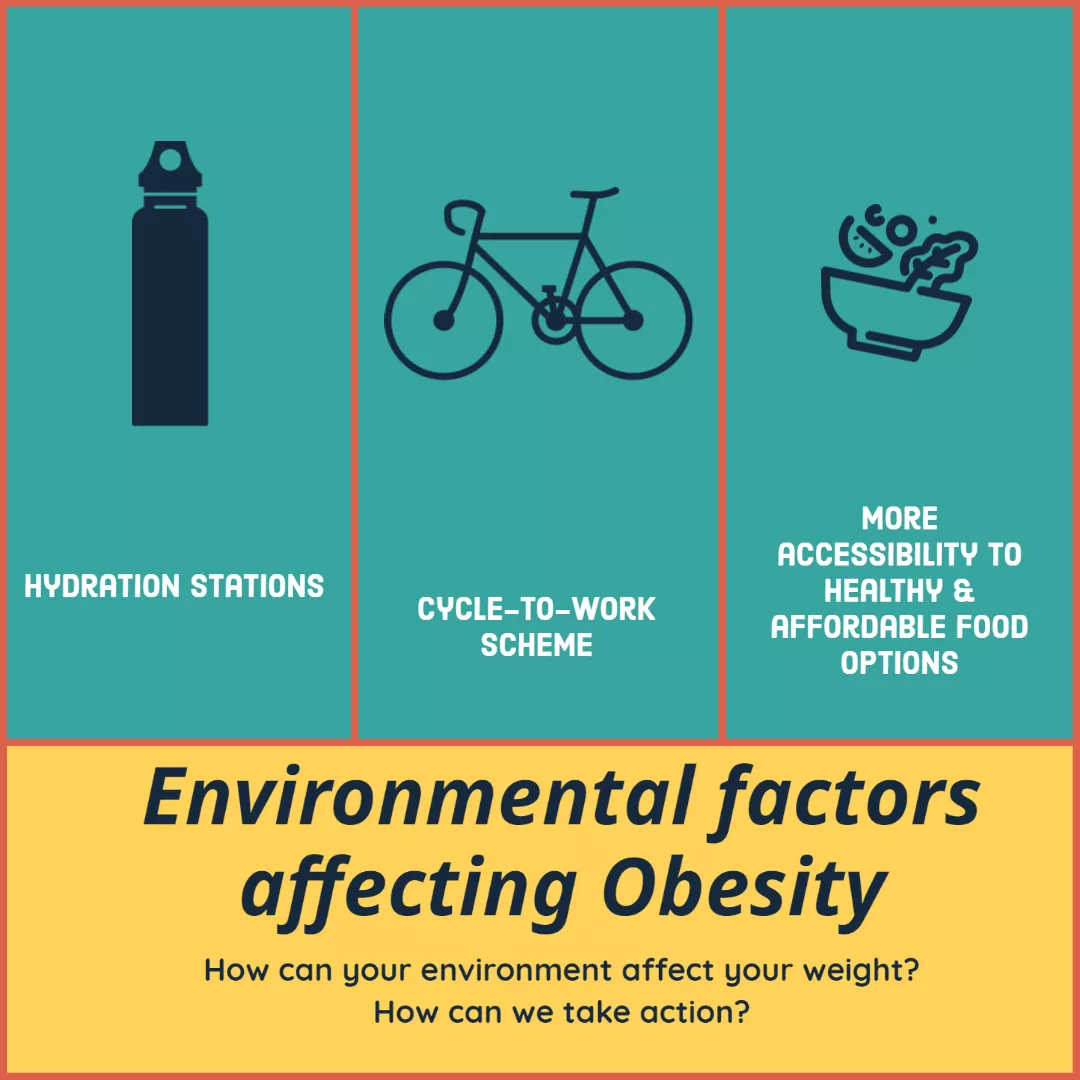
Environmental Factors Affecting Your Weight
Can the environment predict our weight?
I had the opportunity to attend a work conference in the sunny city of Vienna, brimming with culture, and beautiful aesthetics. As part of our congress we had various lectures covering sustainability and efforts to go green within our departments. This got me thinking about our environmental factors and to what extend can these impact habits and choices affecting our health. What can we do as citizens to promote a healthier enivronment?
I was quick to think of the need for more cycle lanes, efficient public transport, accessibility to healthy food options at an affordable price and having more hydration water filling stations installed in public areas. These points were all suggested in various strategies published by the European Commission (2007) and World Health Organisation (2017). All valid points which require the efforts of the state to set up and implement.
But what can we do, with what we have at the moment? As citizens, lacking the power to implement large scale projects, what are small tangible changes that we can make to improve our environment at present?
-
Promote cycle to work initiatives As business managers/CEOs out there, promote to your employees the idea of cycling to work. Instead of paying to park their car, reward your employees with a cycle to work benefit. This will encourage them to cycle instead of drive, reducing traffic and fuel emissions and promoting physical activity. This system is already in place in lots of hospitals and companies across the world.
-
Park and Walk Choose to park further away from your final destination and walk the last 15 minutes, especially when visiting restaurants etc., introducing some form of physical activity pre/post dinner.
-
Hydrate and Reuse Have a reusable water bottle with you to refill from water stations rather than using disposable plastic bottles. Installing water filling stations at your place of work/school would also encourage hydration amongst your employees and possibly lower intake of soft drinks.
-
Prepare your own food Eating healthy does not mean buying ready made salads that are way overpriced. Opt for buying fresh vegetables and preparing your own salad. A quick tuna salad with one hard boiled egg, brown rice, lettuce, tomatoes, peppers and some feta/mozzarella, will only cost you 2.50-3 euros per salad as opposed to ready made salads costing 8-10 euros. Studies have shown that the increased accessibility to take aways, foods high in sugar and highly processed foods has led to diets high in energy leading to weight gain. Limit your intake of take away meals to once or twice a week.
-
Preventing Childhood Obesity The EU Action Plan on Childhood Obesity 2014-2020 and Eurohealth (2019) strategies promote a healthy start in life. It is suggested that as parents, we try to limit the exposure of children to the marketing of unhealthy food choices, encourage them to walk to school and make healthy options the easier and more acessible to them, since they fall within our responsibility and lack the power to prepare their own food. These entities identified three critical periods during a life course; preconception and pregnancy, infancy and early childhood and older childhood and adolescence, where consideration should be taken for preventing obesity.
-
Set your own Example Set an example to your work colleagues, cycle to work, bring your own lunch. Those of you responsible for setting up conferences/meetings, aim for healthy food options; brown sandwiches, nuts, wholemeal wraps, water.
-
Voice your opinion on infrastructure. We need open public spaces, parks, sport complexes, cycle lanes and an efficient public transport system. When our opinions are requested, make sure to voice them on social media platforms, surveys etc. Studies showed that neighborhoods with unhealthy food environments, lower walkability, more commuting and higher perceived traffic density were linked with higher BMI, whereas proximity to recreational parks and facilities was linked with lower BMI.
As a nation, we need to promote prevention, not just cure. Having social and built environmental factors that promote physical activity and health is important. Citizens are the building blocks of every country, so promotion starts with us, with whatever we have available. Small steps lead to big changes! Start now, take action!

